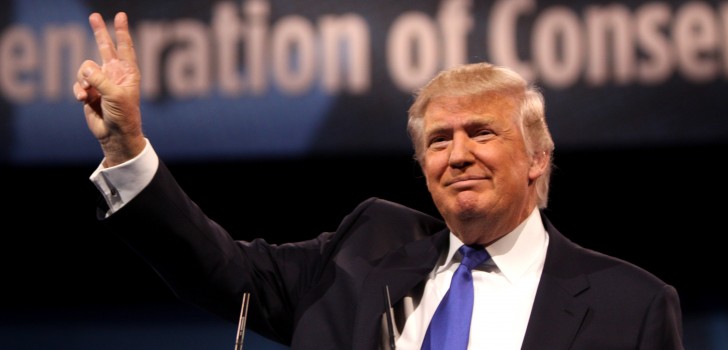Donald Trump, Republican presidential ticket front-runner, has made proposals aimed at simplifying the U.S tax code, bringing down the rate of corporate tax and further imposing a one-time levy on earnings from overseas obtained from U.S companies.
Speaking in a news conference held at Trump Towers, Manhattan, on Monday, Trump vowed to get rid of loopholes and deductions for special interest groups if elected President in the November 2016 elections. He said, “It’s a tax reform that I think will make America strong and great again,” promising “major tax relief for middle income and most other Americans.”
Donald Trump, a real estate magnate, has taken a different approach in his campaigns against other Republicans through anti-corporate rhetoric.
In the news conference, Trump proposed a 10 percent tax which is one-off on the profits of U.S companies held abroad, whether the companies are repatriated or not. These suggestions aim at solving the challenge of offshore bank profits that have plagued the country’s economy for years. The profits are estimated by Reuters to be worth 2.3 trillion US dollars.
The billionaire businessman said, “Everybody agrees it should come back, Republicans, Democrats. The reason companies aren’t bringing it back is the tax is onerous. It doesn’t make sense to bring it back.” Repatriated profits at the moment get a 35 percent tax.
Trump also proposed capping the tax rate on all types of businesses at 15 percent. The present corporate tax rate is 35 percent, which he thinks is too high and does not encourage a thriving business environment. He aims to also eliminate the death tax in formal halls referred to as estate tax.
Trump further assured the audience he would eliminate the “carried interest” loophole. This allows hedge fund managers and private equity to pay a tax rate that is lower. The tax brackets he promised would be reduced also from seven to four to make it easy for voters to file returns.
Trump’s policies on tax have far reaching ramifications, both economically and geographically. Through the application of the taxes on foreign profits, the billionaire will tap into sources of revenue previously alien to the federal government but at the cost of demotivating foreign investors.
Stay Connected